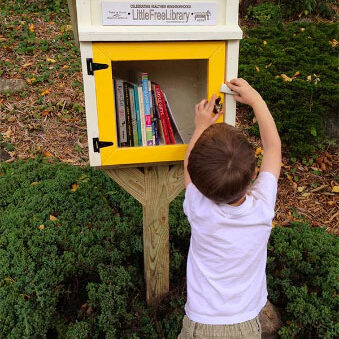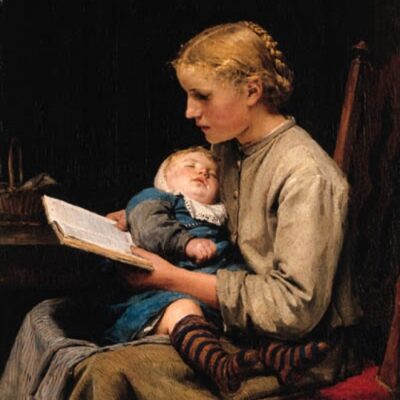Rough Sleepers by Tracy Kidder
Dr. Jim O’Connell’s Urgent Mission to Bring Healing to Homeless People
Keep watch, dear Lord, with those who watch or work or weep this night, and give your angels charge over those who sleep. (Attributed to Saint Augustine)
After Jim O’Connell graduated from Harvard Medical School and was nearing the end of his residency at Massachusetts General in 1985, the hospital’s chief of medicine called him into his office and proposed a plan. He asked him to defer a prestigious fellowship and spend a year helping to create an organization to bring health care to homeless citizens in Boston. This would mean providing medical care where they lived: often under bridges, down back alleyways and on park benches. Jim agreed and that one year turned into his life’s calling.
‘Rough sleepers’ is a 19th-century term for people who dwell mostly out of doors, on the margins of the margins — in parks, in subway tunnels, and on sidewalks. In an increasingly costly, gentrifying Boston, the number of rough sleepers is increasing, even though they die at 10 times the rate as housed Bostonians. Death comes in the form of overdoses, being set on fire, being beaten to death, suicide, or falling asleep in the snow and never waking up.
To write the Rough Sleepers, Tracy Kidder shadowed Dr. O’Connell and his team for five years on their evening runs as they drove through Boston checking on people in need. The book begins with a description of his first night.
“Around ten on a warm September night, the outreach van stopped in the kind of South Boston neighborhood said to be “in transition.” On one side of the street was a new apartment building, its windows glowing, its sidewalk lit by artful imitations of old-fashioned streetlamps. On the other side, in murky light, stood an abandoned loading dock. A heap of blankets lay on the concrete platform. Someone passing by wouldn’t have known they were anything but discarded blankets. But when the driver of the van walked up the steps and spoke to them, saying he was doing a wellness check, a muffled voice came back from underneath: “Fuck you. Get the fuck outa here.”
The driver turned away and shrugged to Dr. Jim O’Connell, who was standing at the bottom of the steps. “Let me try,” the doctor said, and he climbed up to the platform and knelt by the gray mound. “Hey, Johnny. It’s Jim O’Connell. I haven’t seen you in a long time I just want to make sure you’re all right.”
An earthquake in the blankets, then an eruption: Tangled hair and a bright red face and a loud voice, saying in a Boston accent, “Doctah Jim! How the fuck are ya!”
For the next half hour, Johnny reminisced—about the alcohol-fueled adventures of his past, about mutual old friends, mostly dead. The doctor listened, laughing now and then. He reminded Johnny that the Street Clinic was still open on Thursdays at Mass General. Johnny should come. That is, if he wanted to come.
Dr. Jim — James Joseph O’Connell — had been riding on the outreach van for three decades. During those years he had built, with many friends and colleagues, a large medical organization, which he called “the Program,” short for the Boston Health Care for the Homeless Program. It now had four hundred employees and looked after about eleven thousand homeless people a year. Jim was its president, and also captain of the Street Team, a small piece of the program, with eight members serving several hundred homeless people who shunned the city’s many shelters and lived mainly outside or in makeshift quarters. About half of Jim’s administrative work now lay in managing the Street Team, and all of his clinical work went to doctoring his patients, Boston’s “rough sleepers,” as Jim liked to call them, borrowing the British term from the nineteenth century.” [pp. 3-4]
If you are old enough, Dr. O’Connell’s approach might remind you of country doctors who knew all the problems in their patients’ households and came when needed. “A country doctor approach for an urban population—this was the kind of doctoring that could bring in suspicious patients. Most had been bruised by hospitals and doctors, and if they were ushered in and out of an exam room too quickly, most would stay away thereafter.” [p. 90]
The gift Dr. O’Connell gives his patients is listening. He follows his friend and mentor Barbara McGinnis’ advice to just be there and be present and, if need be, stand with them in the darkness. He has said: “When you see someone on the streets and they’re asking for something… the most important thing is to not look away from them, just look them in the eye. If you don’t want to give them money, offer a Dunkin’ Donuts gift card. Most importantly, acknowledge them and honor their humanity.”
A poem by Michael Frada, U.S. Army veteran, for many years homeless and a patient of the Boston Street Team offered in the epigraph of “Rough Sleepers” helps underscore Dr. Jim’s advice.
It is titled “I Am.”
I am sometimes upfront
I am sometimes off-centered
I am sometimes concealed by myself
I am sometimes not even friggin there
I am strong as an oak and weak as an acorn
I am a child, love me
I am a boy, take my hand
I am a soldier, so please understand
I am peaceful and proud, humble yet arrogant
I am calm, yet violent
I am quiet, yet thunderous
So if we should meet for a moment on my life’s journey
Smile at me, talk to me, or simply be still
And know that I am.
Please read this immersive, insightful, and inspirational book.
Articles of Interest about Dr. Jim O’Connell:
Health and Homelessness: On the front lines w/Dr. Jim O’Connell
Visionaries: Dr. Jim O’Connell, Provider Of Health Care To The Homeless
House Calls To The Homeless: A Doctor Treats Boston’s Most Isolated Patients
‘You Have to Learn to Listen’: How a Doctor Cares for Boston’s Homeless
Check Amazon for more on this book I love.

















